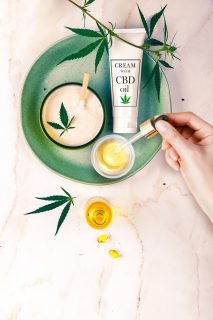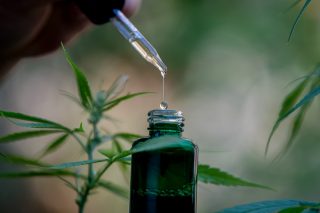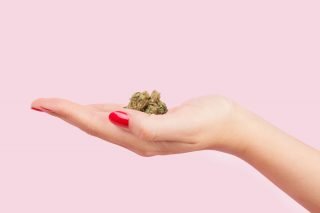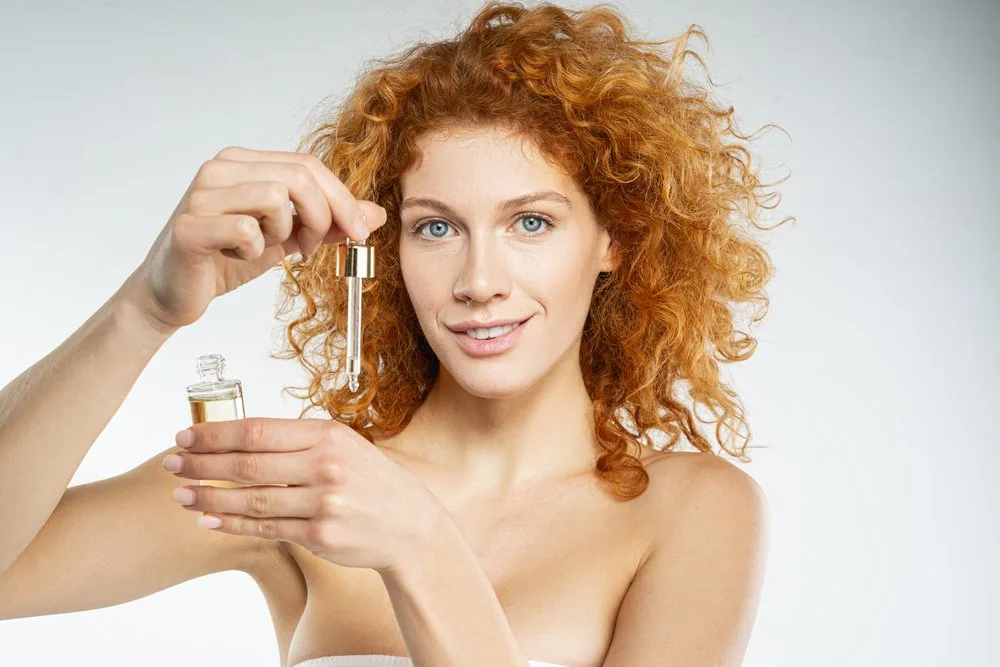When the South African Constitutional Court effectively decriminalized the possession, use, and cultivation of cannabis in private dwellings, in September 2018, we found ourselves in “the age of cannabis”.
Along with the relaxation of the law, emerging scientific research into the benefits of the plant has led to various industries incorporating it into their products, and to the increasing use of CBD as a significant beauty and wellness ingredient.
What is CBD?
Cannabidiol, most commonly known as CBD, is a chemical compound found in a cannabis plant. It’s one of its most well-known compounds after THC (tetrahydrocannabinol), which is the one responsible for producing a high.
Unlike THC, CBD will not get you high. Research suggests that CBD can help alleviate pain, insomnia, and anxiety. It may also be used as part of a substance-abuse treatment plan. Because of its benefits, the wellness and beauty industry has experienced an influx of CBD-based products. This includes creams, gummies, and even oils.

IRA_EVVA/Shutterstock
As an oil, CBD oil comes in three categories:
- Full-spectrum CBD oil, which contains all compounds of the cannabis plant, with THC at a very low level;
- Broad-spectrum CBD oil, which contains all compounds of the cannabis plant, but is free of THC; and
- CBD oil, made using CBD isolate, which has only CBD.
What about hemp?
Hemp is a species of the cannabis plant that contains less than 0,3% THC. It’s not used for recreational purposes, but rather in the production of textiles, clothing, and biofuel. It has also been found to be a safer alternative to both plastic and paper.
CBD can be extracted from hemp for health purposes. CBD extracted from hemp is free of THC, unlike CBD extracted from the cannabis sativa plant.
Hemp can also be used for dietary purposes, as its seeds are rich in amino acids. Hemp-seed oil can be used in cooking, as it’s rich in protein and provides a nutty flavor. What’s more, as it has a moisturizing effect, hemp-seed oil is often used as an ingredient in lotions.
“Products that contain hemp-seed oil are incredibly nourishing for the skin; it’s a great addition to many skincare products,” says Amy Paterson, community manager of South African CBD brand Goodleaf.
As for the difference between the two? CBD oil is extracted from the hemp plant’s flowers and leaves, whereas hemp oil is extracted from its seeds. Ironically enough, hemp-seed oil is the best carrier oil for CBD.
As the extraction process is easier for hemp oil, CBD based-products are often more expensive than hemp-based products.
What benefits does CBD offer for the skin?
“CBD is beneficial for conditions including acne, pigmentation, eczema, psoriasis, and rosacea,” explains Jena Goncalves, founder and CEO of the South African CBD-skincare brand Alchemy Elixzar. “CBD is rich in vitamins A, C, and E. It also stimulates collagen and the cells responsible for keeping skin firm and healthy.”
“Your body’s ECS (endocannabinoid system) is a complex network of receptors that work to signal to your brain where there is an imbalance in the body, so it can work to regulate and restore it. The stimulation of the ECS by CBD and other cannabinoids makes it more effective at doing this,” says Paterson. “CBD, in particular, is highly effective at treating immune-related and inflammatory issues, including redness, rashes, inflammation, puffiness, and swelling of the skin.”
She adds that ECS plays a role in the regulation of sebum. Therefore any disruption can cause oily skin, blocking pores and resulting in acne. “By regulating sebum production, CBD prevents this from happening and can be a powerful and effective treatment against skin breakouts and chronic acne. In doing so, it’s also working to keep your skin hydrated and supple.”
Can my moisturizer make me high?
“While CBD can be absorbed through the skin, it will not reach your bloodstream,” notes Goncalves. “CBD applied topically will reach your cannabinoid receptors through the pores of your skin, and then get absorbed and sent to receptors where you need it most. Because CBD has no THC, it won’t be able to make you high, either by ingesting it or applying it topically.”
How legal is CBD skincare?

JETACOM AUTOFOCUS/Shutterstock
On 22 May this year, the Minister of Health, by way of Government Notice R.586, amended schedules 4, 6, and 7 of the Medicines and Related Substances Control Act 101 of 1965.
“For purposes of skincare products, the amendment has changed the definition of products that contain CBD, which are considered to be schedule 4 substances,” explains Andrew Lawrie, an associate at Schindler’s Attorneys.
Schedule 4 substances can only be sold on prescription. However, there are exceptions to the amendment. Skincare products containing CBD won’t be considered Schedule 4 substances if they meet the following two requirements:
Option A: The skincare product:
- It is a complementary medicine;
- Contains no more than 600 mg CBD per sales pack and provides for a maximum daily dose of 20 mg; and
- Makes a general health enhancement, health maintenance, or relief of minor symptoms claim (as opposed to claiming to cure a specific disease or ailment);
or
Option B: The skincare product:
- is a processed product made from raw cannabis plant material;
- is intended for ingestion; and
- it Contains 0,0075% or less of CBD, where only the naturally occurring quantity of cannabinoids found in the source material is contained in the product.
“If the CBD skincare product falls into either of these categories, it will be considered to be a schedule 0 substance, and it will be allowed to be sold in an open store,” explains Lawrie.
However, if you’re looking to grow a CBD-based skincare business, there are a few things you need to be aware of.
“Schedule 0 substances are still scheduled substances. Therefore, one would also need a license in terms of section 22C(1)(b) of the Medicines Act in order to (i) manufacture, (ii) import, (iii) export, (iv) wholesale or (v) distribute schedule 0 skincare CBD products,” says Lawrie. However, you would not require a license to sell schedule 0 CBD skincare products in the retail sector.
If you wish for your skincare product to be considered a schedule 0 CBD skincare product, you need to prove that it falls into one of the categories mentioned above. “In Schindlers’ experience, the cannabis community views option B as a waste of time, given the arbitrarily low percentage of CBD that it requires,” says Lawrie. “However, unlike option A, option B does not require that the skincare product in question be a complementary medicine, which is required to be registered as a medicine with the South African Health Products Regulatory Authority.”

Eskymaks/Shutterstock
How do I find the right CBD skincare products?
“Ensure that all the ingredients, including the CBD, are of good quality and from a good source. And if you have sensitive skin, be sure to find a range that is free of fragrances and irritants,” advises Paterson.
While South Africa is well regulated, it would be best not to buy CBD from someone who is unable to supply you with a certificate of analysis of what the CBD and THC levels are in their products, adds Goncalves.
Also, don’t worry about looking for other forms of cannabis skincare. THC-based products are not yet legal for trade in South Africa when it comes to skincare. That said, CBD is a much superior beauty ingredient. For one, it’s been shown to penetrate the skin 10 times better than THC. Furthermore, its anti-inflammatory properties are more potent.



![women [longevity live]](https://longevitylive.com/wp-content/uploads/2020/01/photo-of-women-walking-down-the-street-1116984-100x100.jpg)










